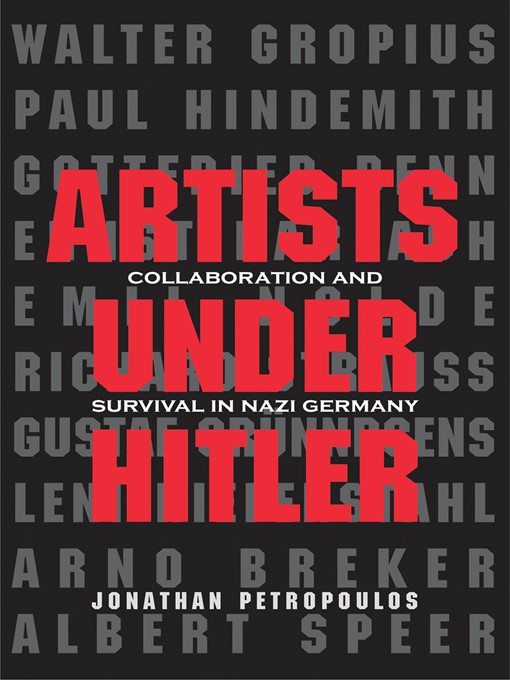A penetrating inquiry into the motives, moral dilemmas, and compromises of Walter Gropius, Emil Nolde, and other celebrated artists who chose to remain in Nazi Germany
"What are we to make of those cultural figures, many with significant international reputations, who tried to find accommodation with the Nazi regime?" Jonathan Petropoulos asks in this exploration of some of the most acute moral questions of the Third Reich. In his nuanced analysis of prominent German artists, architects, composers, film directors, painters, and writers who rejected exile, choosing instead to stay during Germany's darkest period, Petropoulos shows how individuals variously dealt with the regime's public opposition to modern art. His findings explode the myth that all modern artists were anti-Nazi and all Nazis anti-modernist.
Artists Under Hitler closely examines cases of artists who failed in their attempts to find accommodation with the Nazi regime (Walter Gropius, Paul Hindemith, Gottfried Benn, Ernst Barlach, Emil Nolde) as well as others whose desire for official acceptance was realized (Richard Strauss, Gustaf Gründgens, Leni Riefenstahl, Arno Breker, Albert Speer). Collectively these ten figures illuminate the complex cultural history of Nazi Germany, while individually they provide haunting portraits of people facing excruciating choices and grave moral questions.
- Available now
- New eBook additions
- New kids additions
- New teen additions
- Most popular
- Great reads without the wait!
- See all ebooks collections
- Favorite Recorded Books Audio
- Available now
- New audiobook additions
- New kids additions
- New teen additions
- Most popular
- Try something different
- Family Road Trip Audiobooks
- Audiobooks for the Whole Family
- Great Narrators
- Always Available Audiobooks
- Listen While You Run: Audiobooks for Workouts
- Poetry is Meant to Be Spoken
- See all audiobooks collections
- Top Magazines - Now Available!
- Crafting & DIY
- Just added
- Sports
- Health & Fitness
- News & Politics
- Cars & Motorcycles
- Food & Cooking
- Business & Finance
- Revistas digitales
- 中文(简体
- 雑誌
- See all magazines collections

